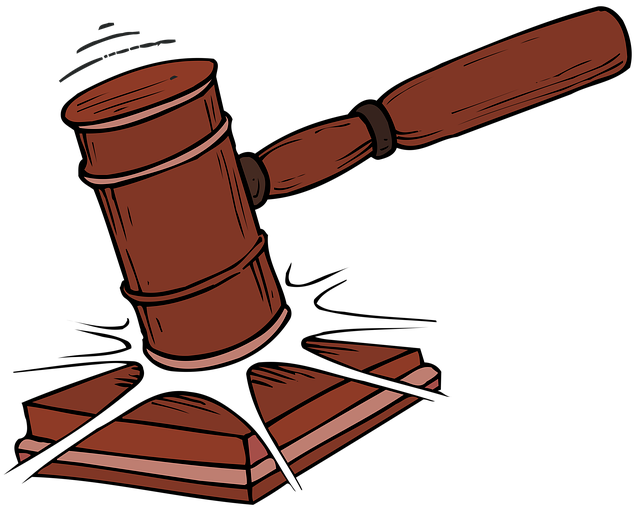Healthcare Compliance experts are vital for navigating complex regulations and ensuring industry integrity, guiding providers through critical areas like coding, billing, and record-keeping. In criminal cases, various evidence types such as physical, testimonial, and documentation (including EHRs, charts, and digital media) are pivotal. Compliance experts collaborate with attorneys to present evidence in healthcare fraud cases, fostering trust and accountability. Understanding the intersection between compliance and law is key when facing criminal accusations, with proactive defense strategies leveraging detailed records potentially leading to favorable outcomes. They face significant challenges in analyzing and presenting evidence while navigating evolving regulations and high-stakes interests through fact-based testimonies.
Healthcare Compliance Experts play a pivotal role in ensuring medical institutions adhere to legal and ethical standards. This article delves into their multifaceted responsibilities, particularly within criminal proceedings. We explore key Types of Evidence Used in Criminal Prosecution relevant to healthcare cases, highlighting the intricate intersection between compliance and legal oversight. Furthermore, it uncovers common challenges faced by these experts and provides best practices for efficient documentation and evidence handling, underscoring the importance of robust compliance strategies in healthcare law.
- Understanding Healthcare Compliance Experts: Their Role and Responsibilities
- Key Types of Evidence in Criminal Prosecutions: An Overview
- The Intersection of Healthcare Compliance and Legal Proceedings
- Common Challenges Faced by Healthcare Compliance Experts in Criminal Cases
- Best Practices for Effective Documentation and Evidence Handling in Healthcare Law
Understanding Healthcare Compliance Experts: Their Role and Responsibilities

Healthcare Compliance experts are pivotal in ensuring that healthcare organizations adhere to a myriad of regulations and laws designed to protect patients and maintain the integrity of the industry. Their multifaceted roles include developing and implementing compliance programs, conducting internal audits, and monitoring regulatory changes. They act as guardians, safeguarding against potential legal pitfalls and financial losses that can arise from non-compliance. These experts are well-versed in a wide array of healthcare laws, from privacy regulations like HIPAA to anti-kickback statutes, ensuring that every aspect of patient care and administrative processes is conducted ethically and legally.
By delving into complex issues such as coding accuracy, billing practices, and record-keeping, they provide crucial guidance to healthcare providers. Their expertise extends beyond legal confines, encompassing ethical considerations and industry best practices. Moreover, these professionals often collaborate with white collar defense attorneys and are prepared to present types of evidence used in criminal prosecution related to healthcare fraud cases, should the need arise. This involvement in navigating regulatory landscapes and addressing potential wrongdoings resonates with both the philanthropic and political communities, fostering trust and accountability within the healthcare sector.
Key Types of Evidence in Criminal Prosecutions: An Overview

In criminal prosecutions, understanding the key types of evidence is paramount for both prosecutors and defense attorneys alike. These include physical evidence, such as fingerprints or DNA samples, which can directly link a defendant to the crime scene. Testimonial evidence from witnesses who observed the crime or have relevant knowledge is equally crucial. Documentation plays a significant role too—from police reports and medical records to financial documents and digital media—all serving as vital pieces of the puzzle in high-stakes cases.
The presentation of these types of evidence during jury trials is often decisive in determining the outcome. In many instances, it’s not just the existence of the evidence but its interpretation that can make or break a case. For defendants facing potential indictment, the goal becomes avoiding conviction by presenting a compelling defense strategy centered around the admissibility and weight given to different types of evidence presented.
The Intersection of Healthcare Compliance and Legal Proceedings

In the complex landscape of healthcare, compliance experts play a pivotal role in ensuring institutions adhere to intricate regulations. However, their expertise often intersects with legal proceedings, particularly in criminal cases. When healthcare organizations face accusations of fraudulent activities or non-compliance, understanding the intersection between compliance and law is crucial for crafting effective strategies. The types of evidence used in criminal prosecution, such as documentation, digital records, and expert testimony, become vital tools during these legal battles.
For instance, a general criminal defense strategy may involve leveraging detailed records and procedures to demonstrate good faith efforts towards compliance. This proactive approach can help win challenging defense verdicts and even avoid indictment by showcasing a commitment to ethical practices. By presenting robust evidence of adherence to regulations, healthcare compliance experts can contribute significantly to the overall defense strategy, ensuring a fair outcome in legal proceedings related to their field.
Common Challenges Faced by Healthcare Compliance Experts in Criminal Cases

Healthcare Compliance Experts often find themselves navigating complex legal landscapes, particularly in criminal cases where their expertise is crucial. One of the primary challenges they face is understanding and interpreting the vast array of evidence used in criminal prosecution. This includes electronic health records (EHRs), patient charts, audio recordings, and digital communications – all which require meticulous analysis to ensure accuracy and integrity.
They must also confront the unique difficulties that arise when presenting compliance-related defenses. Healthcare regulations are intricate and constantly evolving, making it a winning challenging for experts to decipher and apply them in real-time during trials. Additionally, defense strategies often involve arguing against high-stakes interests, requiring resilience and adaptability to counter aggressive opposition. Across the country, these professionals play a pivotal role in shaping respective business outcomes by providing compelling, fact-based testimonies that can lead to successful challenging defense verdicts.
Best Practices for Effective Documentation and Evidence Handling in Healthcare Law

In the realm of healthcare law, effective documentation and evidence handling are paramount to ensuring compliance and protecting against legal repercussions. Best practices dictate a meticulous approach, where every record is accurately maintained and easily retrievable. This involves implementing robust systems for capturing patient data, clinical notes, and administrative documents, ensuring they are legible, complete, and up-to-date. A structured workflow should be established to streamline the documentation process, with clear roles and responsibilities assigned to staff.
Moreover, healthcare compliance experts must be adept at managing various types of evidence used in criminal prosecution, including electronic health records (EHRs), paper charts, and digital imaging. The respective business, corporate, and individual clients rely on these experts to navigate the complex landscape of evidence handling, ensuring admissibility and integrity while adhering to legal standards and regulatory requirements. This requires a deep understanding of data privacy laws, such as HIPAA, and the ability to maintain confidentiality throughout the documentation and evidence management process.
Healthcare compliance experts play a pivotal role in navigating the intricate landscape of healthcare law. By understanding their responsibilities, we can appreciate the significance of proper evidence handling and documentation in criminal proceedings involving the healthcare sector. The intersection of healthcare compliance and legal processes demands a meticulous approach, especially when addressing common challenges. Armed with knowledge about key types of evidence used in criminal prosecution, these experts ensure fairness and accuracy, ultimately fostering a robust healthcare system. Adhering to best practices for evidence management is essential to maintain integrity and facilitate effective investigations and prosecutions.






